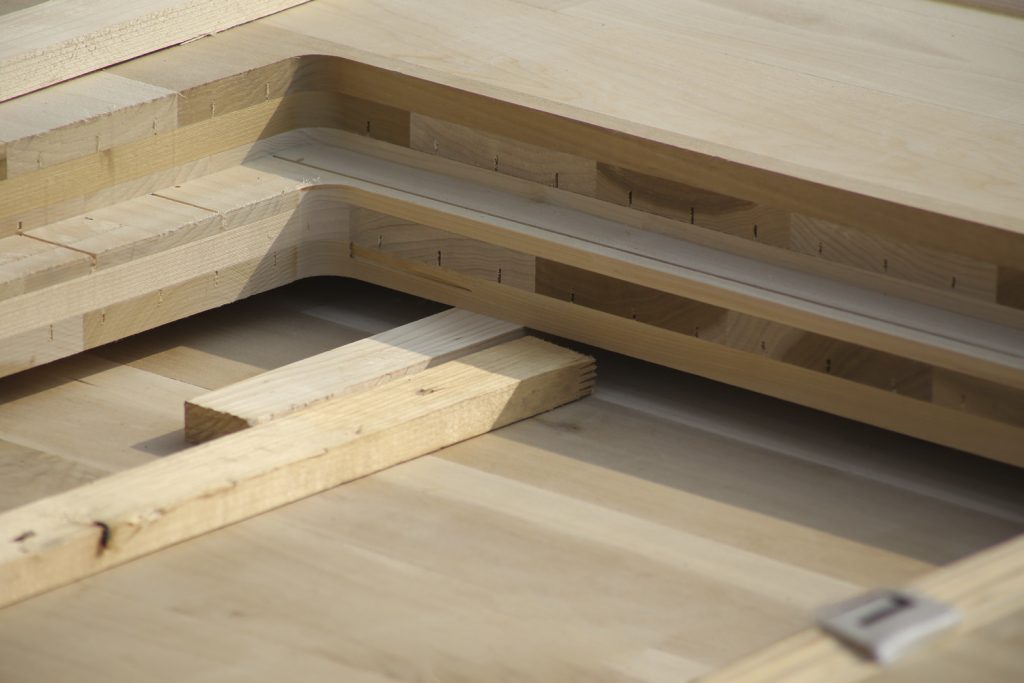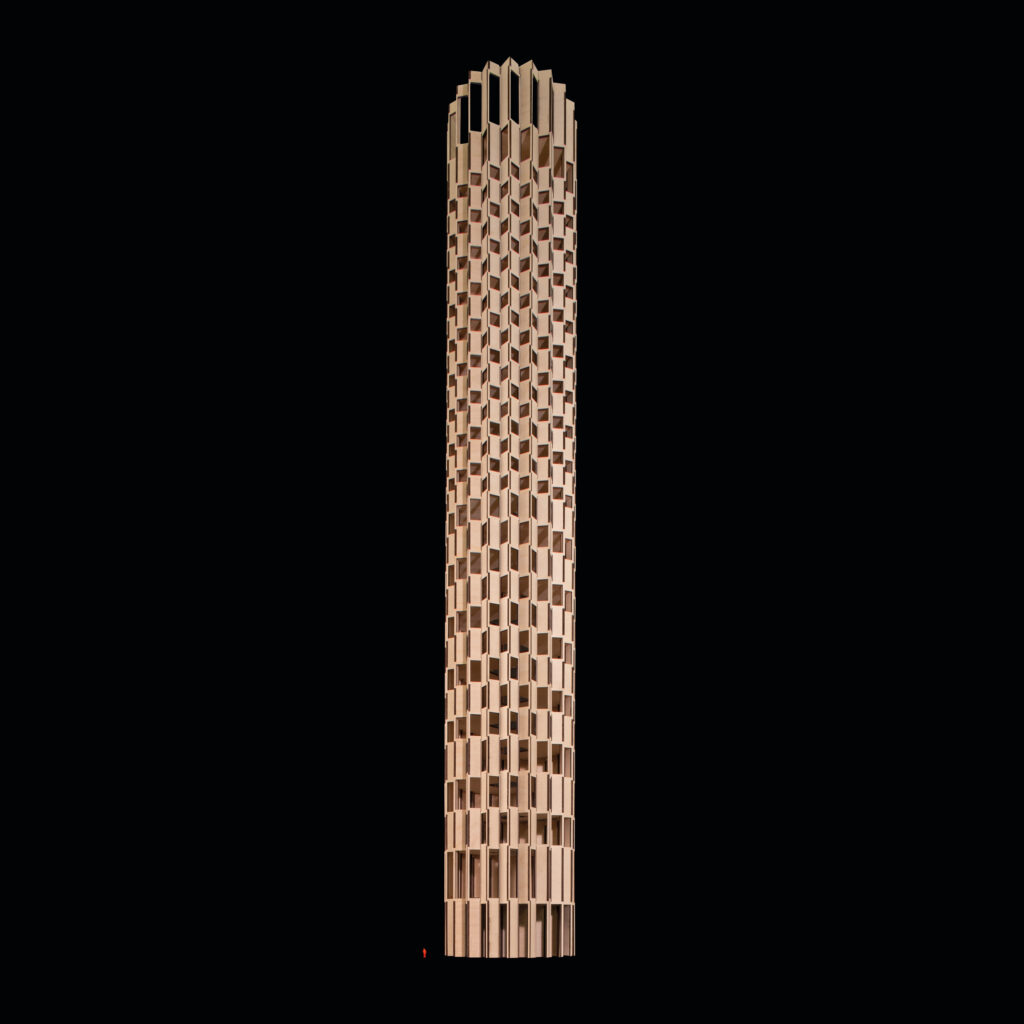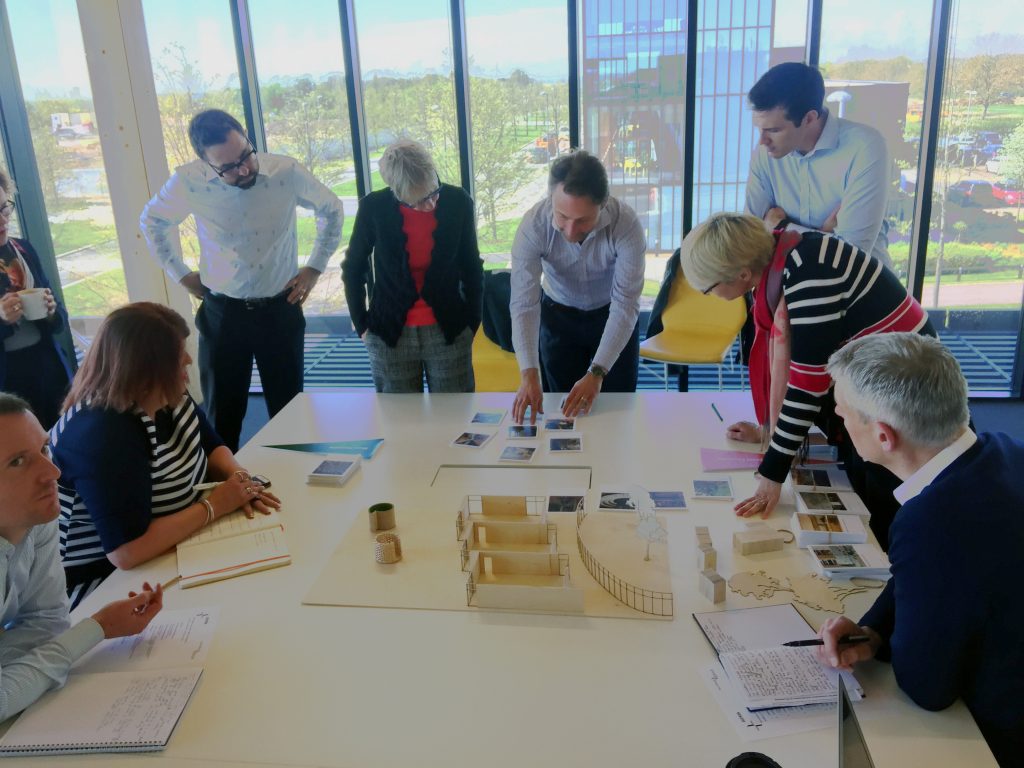dRMM, Edinburgh Napier University, and the Quality of Life Foundation will work together to develop a consistent methodology that consolidates the analysis methods and targets already existing within the industry, bridging any gaps in the process. Our primary motivation will be to understand and demonstrate timber’s whole life carbon value, whilst bringing a focus to wellbeing as a quantifiable value in timber construction, a benefit that is generally neglected in existing analysis.
Results [0]
Measuring mass timber: a whole life carbon and quality of life assessment methodology for mass timber construction
dRMM, Quality of Life Foundation and Edinburgh Napier University Collaborate for Built by Nature Accelerator Fund grant

dRMM is pleased to announce that we have been awarded funding from the network and grant-making accelerator Built by Nature for a research study into the whole life carbon and quality of life impacts of mass timber buildings.
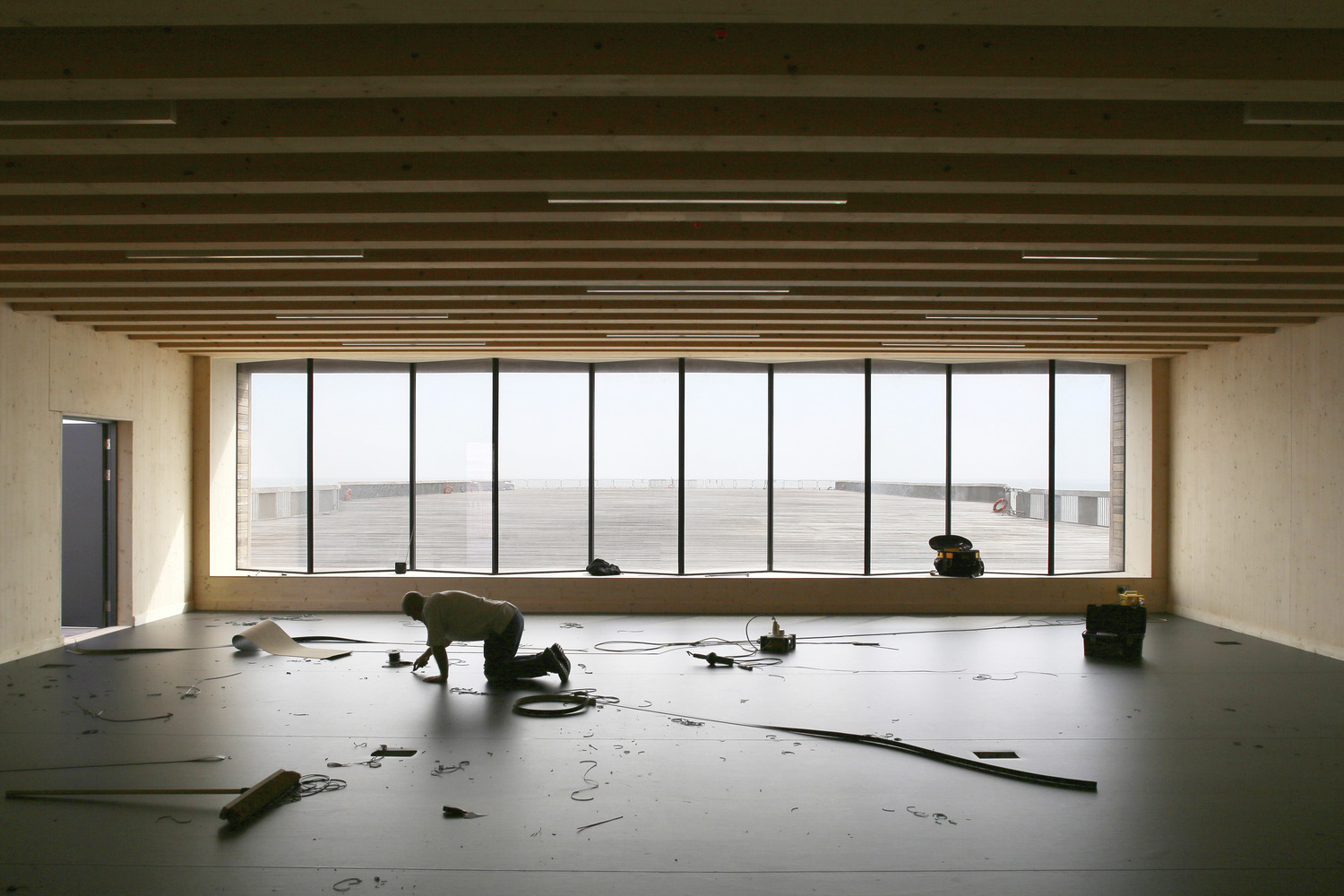
How will this study differ from existing analysis methods? And how could it help shift perceptions and swell industry buy-in towards mass timber construction in the UK?
The problem: There is a great deal of data and research into the potential risks associated with timber construction, which may deter investors and clients. dRMM and our industry partners have identified a lack of data that demonstrates the full potential of timber’s whole life carbon and quality of life benefits. Without widespread adoption of mass timber in construction it will be very difficult for our industry is to decarbonise quickly enough to avoid irretrievable climate breakdown. We urgently need comprehensive and credible evidence base to support the use of mass timber in buildings to help accelerate this adoption.
Currently, findings from mass timber analysis come from piecemeal methodologies and assumptions. This makes comparisons between buildings and studies inconsistent and unreliable in yielding whole life carbon (WLC) and post-occupancy evaluations (POE) rigorous or consistent enough to build a blueprint for measuring mass timber at scale.
The solution: our study presents a consistent method for surveying mass timber buildings as a means to quantifying, and eventually disseminating, the benefits of timber – transcending typology, programme or scale. By evaluating five UK exemplars of a range of mass timber construction types and use classes, the study will provide a scalable method for understanding the carbon and wellbeing benefits of mass timber, and how they can be maximised across national and international development.
Put simply, by analysing a range of timber buildings we hope to derive some reliable ‘rules of thumb’ that show the substantial benefits of building any building in timber, far outstrip any other ‘business as usual’ construction methods, even including sustainable steel and concrete.
In keeping with Built by Nature’s aim to accelerate the mass timber building transformation in Europe, this study will build knowledge and legitimacy around the holistic benefits of timber construction. It will acknowledge that carbon alone does not constitute the whole story of timber’s superiority as a sustainable building material. Aside from its carbon credentials, building in timber is known to improve human wellbeing, but quantitative and qualitative data to support this knowledge is still lacking.
The method: to address this data gap, our initial study scope will include whole-life carbon assessments; quality of life oriented post-occupancy evaluations; and building fundamental project information across the study’s five chosen building case studies. This will cover an analysis of as-built quantities of materials and products used to construct the building, in-use energy and water data, surveys and interviews with building occupiers and participating contributors.
The people: dRMM will oversee and guide the study, acting as project lead and unifying the two main research streams – whole-life carbon and quality of life – to work seamlessly as an integrated mixed-method exploration exercise. Edinburgh Napier University will champion the study’s whole-life carbon focus, whilst the Quality of Life Foundation will oversee the data gathering around wellbeing and end-user experience. In addition to this core team, the project will enlist the guidance of an Expert Stakeholder Advisory Group, which will include industry leaders on whole-life carbon, post-occupancy evaluation, design and delivery of mass timber, and policy to ensure the study’s continued alignment to the latest policy and guidance.
We believe that now more than ever – following a pandemic that forced global communities of people to spend much more time indoors – the importance of measuring how far timber can improve our environmental, physical and mental health is incontestable. This project is a direct response to the world’s urgent call for climate action - humanity has less than eight years left to avert the projected 1.5 degree change in climate. We urgently need a reliable evidence base that removes perceived barriers to timber construction.
Director
We see this project as a catalyst that will help promote further investment and research around the benefits of mass timber construction. We do not seek to reinvent the wheel, but to join the dots. Our work will build on the guidance and assessment methodologies already available and circulated within the industry, including the RIBA 2030 Climate Challenge targets; the LETI Carbon Alignment ratings; the RICs guidance on whole life carbon; the RIBA Post-Occupancy Evaluation primer; and the TDUK paper on carbon assessment in timber buildings.
As a practice, dRMM has decades of experience in timber construction and research. Our team has expertise in writing guidance that is technically detailed yet accessible. We will use our networks and public platform ensure that this project reaches a wide audience including designers, policy makers, clients, developers, institutions and judging bodies, ensuring that its advocacy is as extensive as its use.
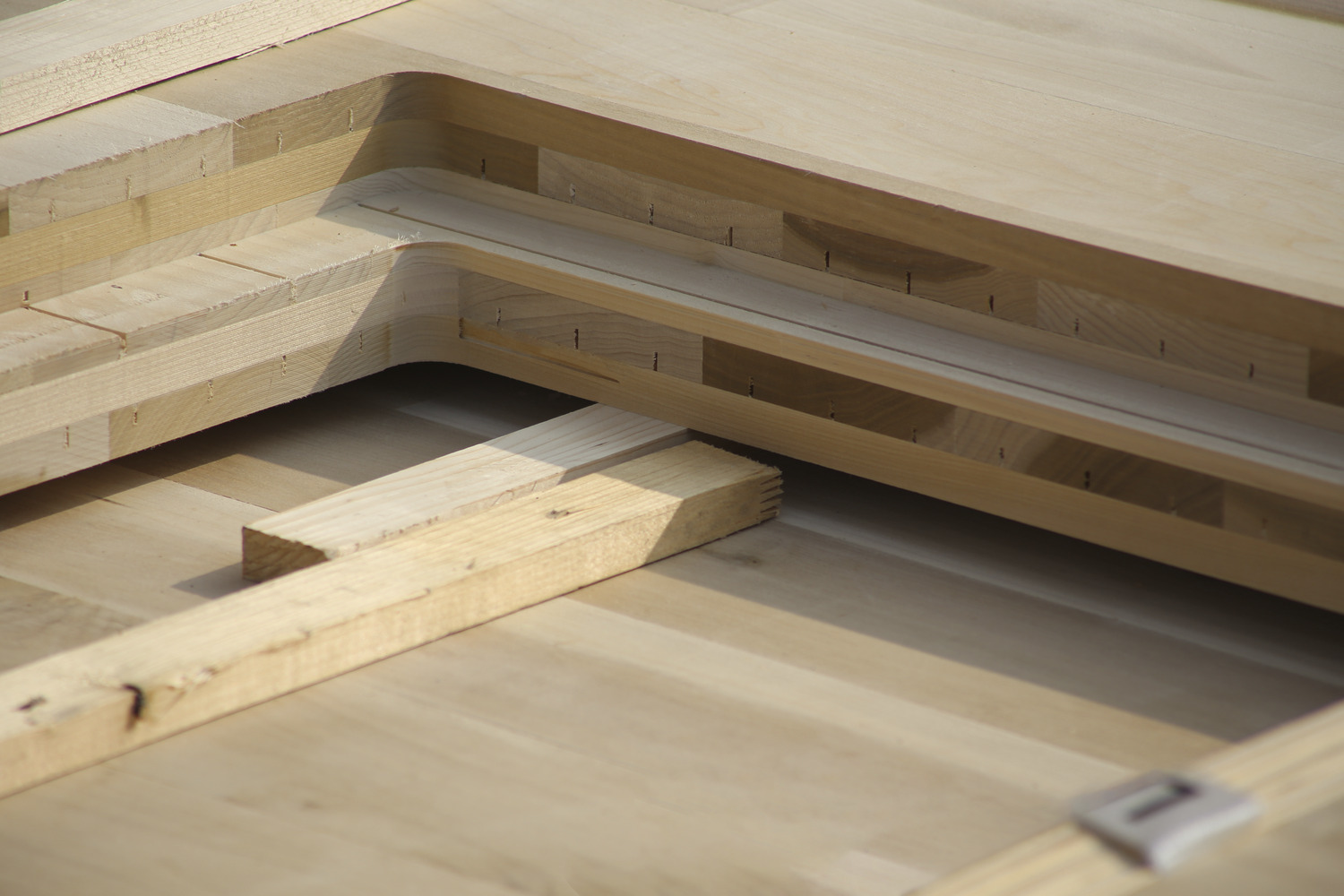
If you believe you might be a good fit to join our Built by Nature Expert Stakeholder Advisory Group, please reach out to us to let us know how you can help. We are also building a directory of mass timber buildings beyond our initial cohort of five buildings – please get in touch if you would like to suggest a UK mass timber building listing.

